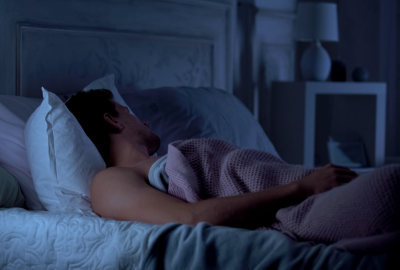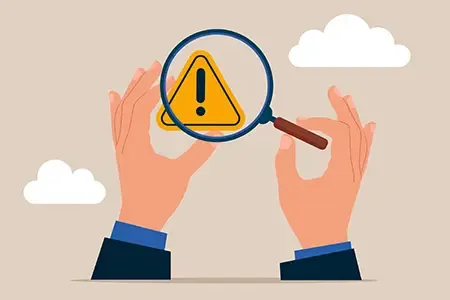Why is sleep important for our health and wellbeing?
By MAS Team
Sleep is a basic biological human need along with air to breathe, water to drink and food to eat. But many of us struggle to get enough sleep, or good quality sleep.
In Te Whare Tapa Whā, a Māori concept of hauora or wellbeing, sleep is important for taha tinana, our physical wellbeing. A strong body helps us feel mentally well, and helps us focus on study, work and relationships.
Sleep specialist Dr Tony Fernando says each person is different and has different needs when it comes to getting the best sleep. He says it’s important we listen to our bodies for signs of what will give us the best rest so we can function in our daily lives.

Sleep is essential for survival and optimal functioning of the mind and the body, says Tony.
During sleep our bodies are at rest, our blood pressure and body temperature drop, but our brains stay active. Our brains undergo maintenance such as laying down memories, clearing waste and supporting learning.
Tony says in the last few years he’s seen an increase in young people thinking sleep is disposable.
“There’s a big move to saying ‘oh, we don’t need as much sleep, we should push ourselves.’”
He says this is particularly common for students and he says there is a payback for that behaviour long-term.
If we are consistently not getting enough sleep, or enough good quality sleep, it can have major impacts on our bodies, minds and emotions, Tony says.
“The immediate effects would be feeling irritable, feeling weak, feeling tired, not feeling functionally optimal. And then there are mood changes.”
Tony says it can also impact our immune function, making us more prone to infections.
In the medium-to-long term, it can have metabolic effects, and affect blood sugar, which can lead to weight issues, he says.
“People find it harder to lose weight and there are risks in terms of diabetes. This makes the body more prone to becoming unwell long-term and at higher risk for anxiety, depression, and even suicide.
“That’s how essential it is.”

The most important thing when it comes to how much sleep you need is to listen to your body, Tony says.
“There are so many mixed messages out there and it confuses people. We need to be aware of our body. When it functions optimally, how much sleep are we getting?”
He says some people function best with seven or eight hours of sleep a night, while others might need only six or as many as 10 hours.
There’s a lot of conflicting information out there about what’s best, and it can make people anxious, he says.
“People will say, ‘oh there’s this study that says if you oversleep, you will die early.’ Or they’ll say, ‘I read this book which said if I’m not getting eight hours of sleep I’ll die early.’
“All these messages confuse people, particularly those who are already anxious. Medical students, a lot of them are anxious and they can become neurotic.
“The most important thing is that you are getting good quality sleep.”
A little self-reflection is needed to find out the best time to go to bed, and how long to stay asleep.
If you are unsure, you can try an experiment – which is best done on holiday when you’re free from work or study commitments.
Tony says some people are called “average clockers”, meaning they would normally feel sleepy around 10pm or 11pm, and then wake up between six and eight hours later.
But other people are known as “owls.” Their body clock doesn’t make them feel sleepy until between 1am and 3am, and their natural waking time is between 10am and 12pm.
“Focusing only on sleep duration will not help you because if you focus on eight hours but you set your bedtime at 10pm because that’s what society expects and you wake up at 6am, because that’s the norm but you are an owl, you’re screwed.
“Because you’ll be twiddling your thumbs between 10pm and 2am, and then you develop anxiety about it because ‘why am I not sleeping?’, and then you get up at 6am and you’re totally sleep-deprived. So, you go to the doctor and you’re diagnosed with depression and put on an antidepressant because you’re not sleeping.
“It’s about your body clock, and has nothing to do with depression.”
Of course, not many owls have the luxury of a lifestyle that allows them to go to bed late every night and sleep through the morning. But there are things you can do to help get to sleep earlier.
The best way to prepare for sleep is to avoid using devices such as laptops, smart phones and video games one to two hours before bed.
That’s because the bright blue light emitted from these devices interrupts the release of the sleep neurohormone melatonin, which makes us feel sleepy.
Tony says owls are especially susceptible to being impacted by this issue because blue light stimulates them and wakes them up. If that’s the case, it might be best to avoid devices and other bright lights for several hours before bed.
He says our night-time routines are also important for telling our brains that we’re preparing for sleep. Whether that’s having a cup of sleep tea or hot chocolate, or putting on your pyjamas.
“It’s a whole ritual that primes your mind to enter a different space. We’re creatures of habit, we’re creatures of routines and if we’ve associated a particular routine with relaxing, then doing those routines are very powerful.”
In the morning, exposure to bright light helps adjust your body clock. For some people, they can benefit from light therapy glasses or lamps.

Assuming you don’t have any major sleep disorders or health issues, if you are waking up in the night, Tony says it’s probably because you have a busy mind. However, brief middle of the night awakening is common and nothing to worry about.
“Difficulty falling asleep and middle of the night awakening are common in over-thinkers. Medical students, a lot of them are over-thinkers. Once they start thinking about their exams, projects, requirements, essays, they start worrying.”
He says engaging in calming, relaxing activities before bed is the best way to prevent this. That starts with not working or studying a few hours before bedtime.
“Good calming and relaxing activities include yoga, tai chi, meditation, or even reading – books that aren’t related to your studies. Others might like listening to music or playing an instrument – things that are calm and unrelated to work.”
Some people who consistently wake during the night might have underlying mood, anxiety issues or ADHD, which should be addressed by a medical professional, he says.
For some people, naps are a normal part of their lives, while for others they can make them feel worse and impact their night-time sleep.
“If a person is sleep deprived it’s definitely ok, however sometimes napping can be a problem if the timing’s wrong. If it’s done closer to the evening or to bedtime, it can ruin night-time sleep quality. And for some people napping can make them feel worse.”
Tony says if you are constantly feeling the need to nap you should ask yourself what is motivating that need.
“Is there something going on? Am I sleep deprived? Or do I party too much, do I play video games too much, am I studying excessively? It’s about paying attention to the body.”

Here's what you need to think about when recruiting and how to get the recruitment process right.

If disaster strikes, you need to have a plan in place to enable your business to get back on its feet. Use this guide to get your plan sorted.

Our personal connections can be more soothing than an hour of meditation so it stands to reason we should be strengthening our relationships.